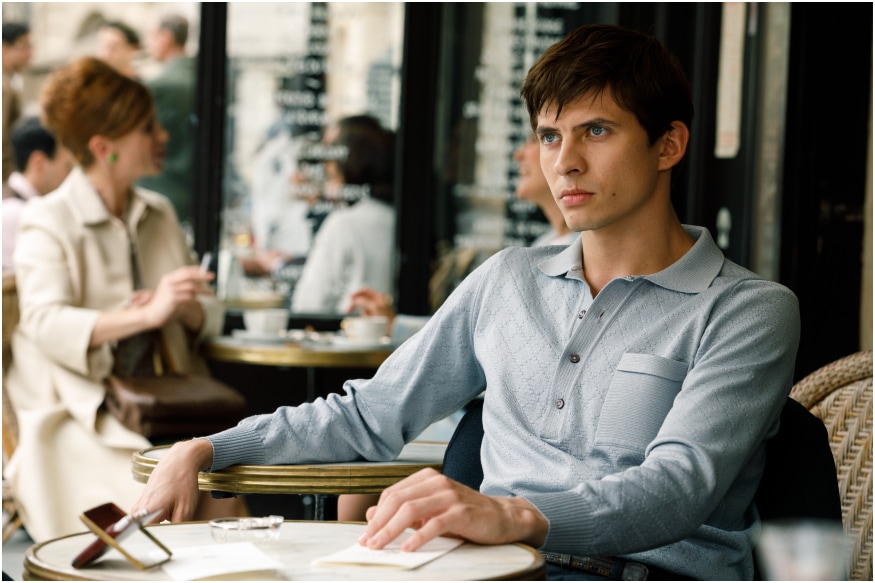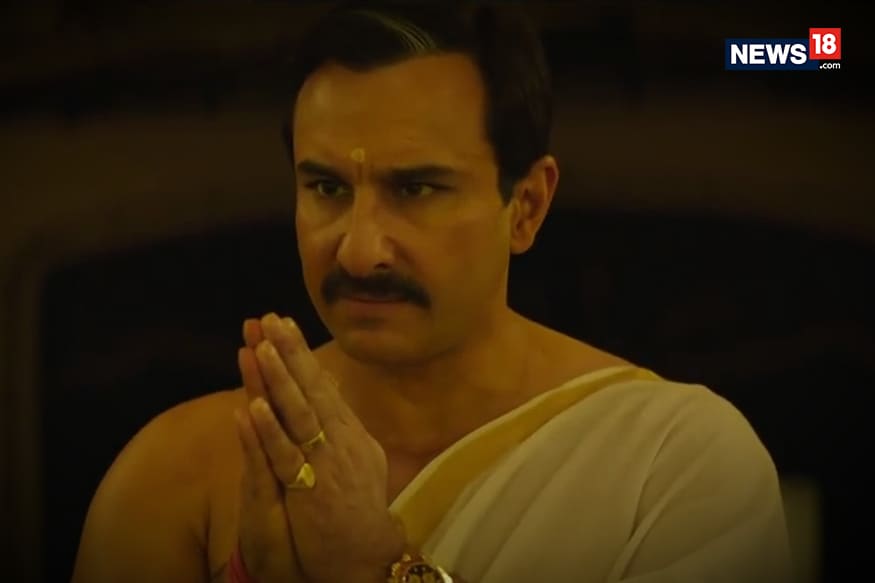The White Crow at Tokyo Festival is a Clumsily Narrated Story of a Soviet Ballet Dancer
Cinema can be fascinating and foxing at the same time. Why is it that you like some movies even though they may not be perfect and have several minus points?

A still from the film The White Crow
Loading...
Cinema can be fascinating and foxing at the same time. Why is it that you like some movies even though they may not be perfect and have several minus points? Really, I have no answer. Ralph Fiennes' latest directorial effort, The White Crow, which played at the ongoing 31st edition of the Tokyo International Film Festival, falls within this bracket.
The White Crow follows Fiennes' somewhat modern adaptation of Shakespeare's Coriolanus ( which was his debut feature behind the camera) was engagingly experimental. His second attempt at helming, The Invisible Woman, was again inspired by English literature. Fiennes falls back on Claire Tomain's book on Ellen Ternan, an actress who made waves largely because of her secret affair with Charles Dickens. He was 45 and she was 18, when they first tumbled into a relationship, which weathered many storms – for 13 years – till the author's death in 1870.
The Invisible Woman (but was she really invisible?) was a deeply moving romantic tragedy from a director who seemed besotted by Shakespeare. Drawing a fantastic performance from Felicity Jones as Ellen, Fiennes gave the movie all the Shakespearean shades.
Fiennes' third feature, The White Crow, is far removed from Shakespeare or England, and takes us to what was once the Soviet Union. Set during the Cold War, The White Crow is a damning look at how the rigidity of the political system suffocates and strangulates individual freedom and artistic expression. The story of the world-renowned Russian ballet dancer, Rudolf Nureyev, the film talks about his birth on a train in Siberia and his fascination for ballet that he could ill-afford to learn, coming as he did from a very poor family.
Narrated through a series of flashbacks, which despite being rendered in monochrome feel intrusive, The White Crow has the famous Ukrainian dancer, Oleg Ivanko, essaying Nureyev, who was a highly temperamental and difficult-to-get-on-with man. But he was immensely talented and so strong willed that he mastered ballet even though he went into it late, and he eventually danced with many leading companies before he died of AIDS in 1993.
One of the best moments in Fiennes' latest outing is the scene at a Paris airport in 1961 (Nureyev travelled to France for a show) when his Soviet handlers wanted him to return to Moscow, not go to London as planned. The dancer threatens to kill himself if he is forced to do so, but ultimately wrangles a political asylum from the French authorities. His friend, Clara Saint (Adele Exarchoplulos), helps him in those vital minutes at the airport, tipping him what to do by whispering instructions into his ears right under the nose of the Soviet officials guarding him. Saint (who made a mark in Blue is the Warmest Colour), though mourning the recent loss of her boyfriend in a car accident, is smitten by Nureyev in spite of his coarse and boorish behaviour, and together they paint Paris red, much to the consternation of the Soviet handlers, who keep following the couple.
Honestly, Saint, who with her headscarf resembles Jackie O, appears so wooden that it is intriguing. Ivanko himself may be a great dancer, but in his first movie role, appears listlessly inexpressive. However, Fiennes' in one of his most understated portrayals as Alexander Pushkin, St Petersburg’s most respected dance instructor, is fantastic. He see something in Nureyev's passion, and pushes him towards his dream.
Unfortunately, The White Crow gets distracted so often from its core plot. The narrative bounces all over. One moment we see Nureyev practising hard, but the scene shifts too quickly to the streets of Paris where he is cavorting with Saint. A certain tightness could have transformed The White Crow into something splendid. Instead, it turns out to be a wishy-washy attempt at painting the life of a legendary dancer.
Yet. there is something in The White Crow that is captivating. Trying to put my finger on it.
(Author, commentator and movie critic Gautaman Bhaskaran has been covering the Tokyo International Film Festival for several years)
The White Crow follows Fiennes' somewhat modern adaptation of Shakespeare's Coriolanus ( which was his debut feature behind the camera) was engagingly experimental. His second attempt at helming, The Invisible Woman, was again inspired by English literature. Fiennes falls back on Claire Tomain's book on Ellen Ternan, an actress who made waves largely because of her secret affair with Charles Dickens. He was 45 and she was 18, when they first tumbled into a relationship, which weathered many storms – for 13 years – till the author's death in 1870.
The Invisible Woman (but was she really invisible?) was a deeply moving romantic tragedy from a director who seemed besotted by Shakespeare. Drawing a fantastic performance from Felicity Jones as Ellen, Fiennes gave the movie all the Shakespearean shades.
Fiennes' third feature, The White Crow, is far removed from Shakespeare or England, and takes us to what was once the Soviet Union. Set during the Cold War, The White Crow is a damning look at how the rigidity of the political system suffocates and strangulates individual freedom and artistic expression. The story of the world-renowned Russian ballet dancer, Rudolf Nureyev, the film talks about his birth on a train in Siberia and his fascination for ballet that he could ill-afford to learn, coming as he did from a very poor family.
Narrated through a series of flashbacks, which despite being rendered in monochrome feel intrusive, The White Crow has the famous Ukrainian dancer, Oleg Ivanko, essaying Nureyev, who was a highly temperamental and difficult-to-get-on-with man. But he was immensely talented and so strong willed that he mastered ballet even though he went into it late, and he eventually danced with many leading companies before he died of AIDS in 1993.
One of the best moments in Fiennes' latest outing is the scene at a Paris airport in 1961 (Nureyev travelled to France for a show) when his Soviet handlers wanted him to return to Moscow, not go to London as planned. The dancer threatens to kill himself if he is forced to do so, but ultimately wrangles a political asylum from the French authorities. His friend, Clara Saint (Adele Exarchoplulos), helps him in those vital minutes at the airport, tipping him what to do by whispering instructions into his ears right under the nose of the Soviet officials guarding him. Saint (who made a mark in Blue is the Warmest Colour), though mourning the recent loss of her boyfriend in a car accident, is smitten by Nureyev in spite of his coarse and boorish behaviour, and together they paint Paris red, much to the consternation of the Soviet handlers, who keep following the couple.
Honestly, Saint, who with her headscarf resembles Jackie O, appears so wooden that it is intriguing. Ivanko himself may be a great dancer, but in his first movie role, appears listlessly inexpressive. However, Fiennes' in one of his most understated portrayals as Alexander Pushkin, St Petersburg’s most respected dance instructor, is fantastic. He see something in Nureyev's passion, and pushes him towards his dream.
Unfortunately, The White Crow gets distracted so often from its core plot. The narrative bounces all over. One moment we see Nureyev practising hard, but the scene shifts too quickly to the streets of Paris where he is cavorting with Saint. A certain tightness could have transformed The White Crow into something splendid. Instead, it turns out to be a wishy-washy attempt at painting the life of a legendary dancer.
Yet. there is something in The White Crow that is captivating. Trying to put my finger on it.
(Author, commentator and movie critic Gautaman Bhaskaran has been covering the Tokyo International Film Festival for several years)
Loading...
Next Story Next Story
Also Watch
Also Watch
 Baazaar Movie Review: Saif Ali Khan Holds His Ground
Baazaar Movie Review: Saif Ali Khan Holds His Ground
 Tuesday 16 October , 2018
News18 Festivals: Enjoy The Delicious Thakur Bari Bhog
Tuesday 16 October , 2018
News18 Festivals: Enjoy The Delicious Thakur Bari Bhog
 Friday 12 October , 2018
Tumbbad Movie Review: Tale Of Greed, Courage And Prophecies
Friday 12 October , 2018
Tumbbad Movie Review: Tale Of Greed, Courage And Prophecies
 Friday 05 October , 2018
Movie Review: With Andhadhun, You Never Know What's Next
Friday 05 October , 2018
Movie Review: With Andhadhun, You Never Know What's Next
 Friday 05 October , 2018
Movie Review: Loveyatri is Annoyingly Cliched
Friday 05 October , 2018
Movie Review: Loveyatri is Annoyingly Cliched

Baazaar Movie Review: Saif Ali Khan Holds His Ground

Tuesday 16 October , 2018
News18 Festivals: Enjoy The Delicious Thakur Bari Bhog

Friday 12 October , 2018
Tumbbad Movie Review: Tale Of Greed, Courage And Prophecies

Friday 05 October , 2018
Movie Review: With Andhadhun, You Never Know What's Next

Friday 05 October , 2018
Movie Review: Loveyatri is Annoyingly Cliched
 Live TV
Live TV
Recommended For You
 Tanushree Dutta Strongly Reacts to Rakhi Sawant's Allegations, Calls her 'Uncouth' and 'Perverted'
Tanushree Dutta Strongly Reacts to Rakhi Sawant's Allegations, Calls her 'Uncouth' and 'Perverted' OnePlus 6 Launch in New York Today: How to Watch Live Stream, Expected Price, Specifications And More
OnePlus 6 Launch in New York Today: How to Watch Live Stream, Expected Price, Specifications And More From Sushi to Superman, These Puppies in Costume are a Halloween Treat
From Sushi to Superman, These Puppies in Costume are a Halloween Treat Bigg Boss 12: Anup Jalota Evicted Says, There's No 'Love Story' With Jasleen Matharu
Bigg Boss 12: Anup Jalota Evicted Says, There's No 'Love Story' With Jasleen Matharu Philips Series 5000i Review: This is Two Air Purifiers in One, For Your Home
Philips Series 5000i Review: This is Two Air Purifiers in One, For Your Home
Photogallery
Loading...
Loading...


 3-min read
3-min read



